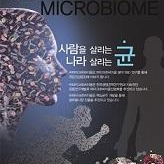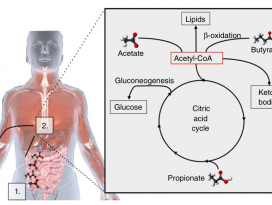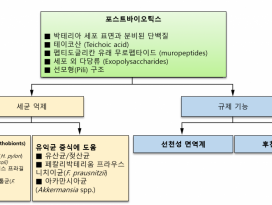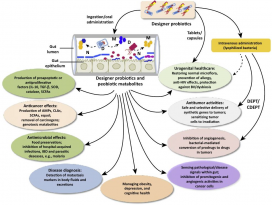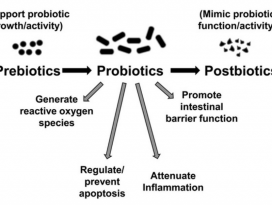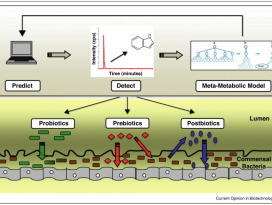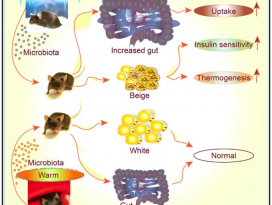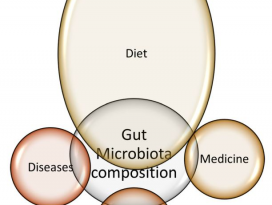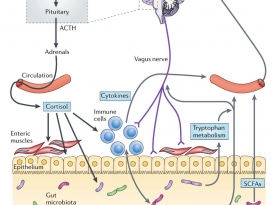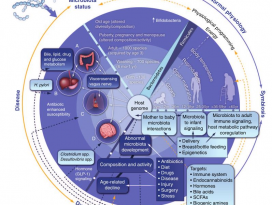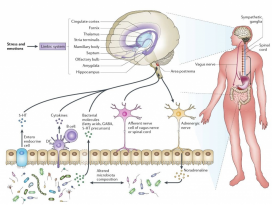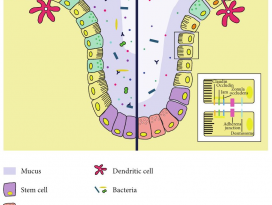[Gut Microbiome] Systematic Review: Gut Microbiota in Fecal Samples and Detection of Colorectal Neoplasms
- e 2355
SystematicReview: Gut Microbiota in Fecal Samples and Detection of Colorectal Neoplasms
Efrat L. Amitay,Agne Krilaviciute & Hermann Brenner
Efrat L Amitay,MPH, PhD, Division of Clinical Epidemiology and Aging Research, German CancerResearch Centre (DKFZ), Heidelberg, Germany; Agne Krilaviciute, MA, Division ofClinical Epidemiology and Aging Research, German Cancer Research Centre (DKFZ),Heidelberg, Germany; Heidelberg Medical Faculty, Heidelberg University, 69120Heidelberg, Germany; Hermann Brenner, MPH, MD, Division of ClinicalEpidemiology and Aging Research, German Cancer Research Centre (DKFZ),Heidelberg, Germany; Division of Preventive Oncology, German Cancer ResearchCentre (DKFZ), Heidelberg, Germany; German Cancer Consortium (DKTK), GermanCancer Research Centre (DKFZ), Heidelberg, Germany
| Abstract Colorectal cancer (CRC) is a leading cause of cancer morbidity and mortality. Dysbiosis in the gut microbiota may be associated with CRC. This systematic review focuses on differences in gut microbial community between people diagnosed with CRC or adenoma and healthy individuals using fecal samples, emphasizing non-invasive fecal microbiome models for CRC early diagnosis. Nineteen studies were identified in a systematic literature search of Pubmed, Web of Science and ScienceDirect. Several bacteria were reported to differ in abundance between CRC and adenoma cases and healthy controls, with Fusobacterium the most common. Fecal multi-bacterial predictive models used to distinguish CRC patients from healthy controls had reported areas under the receiver operating curve (AUCs) in external validation populations of 0.68-0.77. Though advanced sequencing techniques could in the future complement current non-invasive methods for CRC early detection, more studies with high statistical power, comparable and reproducible methods and external validation of predictive models are needed. |
제목
체계적 검토: 분변 샘플 장내 미생물 및 대장암 발견
내용
대장암은 암 이환율(罹患率)과 사망률의 주요 원인이다. 장내 미생물의 불균형은 대장암과 관련이있을 수 있다. 본 체계적 리뷰는 분변 샘플을 사용하여 대장암 또는 선종으로 진단받은 사람들과 건강한사람들의 장내 미생물군의 차이를 비교하는 데 초점을 두며, 대장암 조기 진단을 위한 비침습성 분변 미생물모델을 강조한다. ‘Pubmed’, ‘Web of Science’ 및 ‘ScienceDirect’의 체계적인 문헌 검토를 통해 19개의 연구가확인되었다. 몇몇 미생물은 대장암 또는 선종 환자와 건강한 대조군 사이에 다양성 차이가 나는 것으로보고되었으며, 푸소박테리움(Fusobacterium)이 가장 보편적이었다. 건강한 대조군과 대장암환자를 구별하는 데 사용되는 분변 내 다중 박테리아 예측 모델은 외부 검증 집단에서 AUCs (receiveroperating curve)가 0.68에서 0.77 사이라고보고하였다. 진보된 시퀀싱 기술이 미래에 대장암 조기 발견을 위한 현재의 비침습성 방법을 보완할 수는있지만, 높은 통계적 유의성을 지닌 더 많은 연구와 비교 가능하고 재현 가능한 연구 방법 및 예측 모델의외부 검증이 필요하다.
Keywords
: #Cancer #ColorectalCancer #CRC #ColorectalNeoplasms#Adenoma #CancerMortality #CancerMorbidity #EarlyDiagnosis #Microbiome #Microorganisms #Microbes #Microbiota#GutMicrobiome #GutMicrobiota #GutMicrobes #Dysbiosis #FecalMicrobiota #FecalMicrobiome #Fusobacterium #Bacteria #Probiotics
#암 #대장암 #선종 #암발병률 #암이환율 #암이병률 #암사망률 #조기진단 #마이크로바이옴 #미생물총 #미생물군 #미생물유전자 #장내미생물 #장내미생물총 #장내미생물군 #장내미생물불균형 #분변미생물 #대변미생물 #분변마이크로바이옴 #푸소박테리움 #박테리아 #프로바이오틱스 #유익균
[출처: Amitay, E.L., Krilaviciute, A., & Brenner, H. (2018). Systematic review: Gutmicrobiota in fecal samples and detection of colorectal neoplasms. Gut microbes, 9(4), 293-307.]
|
| ㈜마이크로바이옴 ㈜마이크로바이옴은 생명공학 최고의 기술력을 바탕으로 마이크로바이옴 산업의 성장과 발전의 선도적 역할을 하고 있는 대한민국 대표 마이크로바이옴 R&D 전문 기업입니다. ㈜마이크로바이옴은 생명공학 국가연구기관인 한국생명공학연구원과 마이크로바이옴 관련 상품에 대하여 공동연구개발 및 기술이전을 통하여 공동특허 출원과 마이크로바이옴 상품화에 성공하였고, 마이크로바이옴 글로벌 기업이 되기 위하여 연구개발을 지속하고 있습니다. |
| no. | 제목 | 조회수 |
|---|
㈜마이크로바이옴 ㅣ 서울시 서대문구 연희로 77-12 영화빌딩2층
Tel :02-322-0302 l Fax : 02-322-0759
Copyright (c) Microbiome. Co. All Rights Reserved.

